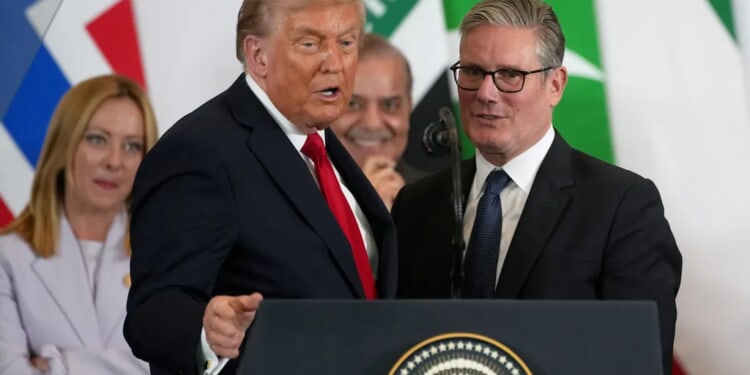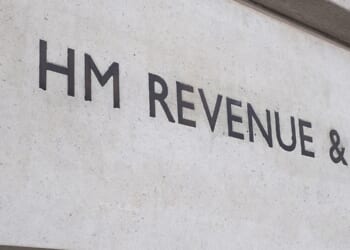The United Kingdom, which controls several territories in the Caribbean, has long maintained an intelligence presence in the region. And until recently, the U.K. government routinely shared relevant information, including the locations of suspected Latin American drug-trafficking vessels, with the United States.
However, sources told CNN this week that the U.K. has halted this type of intelligence sharing because it does not want to be complicit in the Trump administration’s recent military strikes on drug-smuggling boats in the area, which British officials view as violations of international law.
The U.K.’s move represents a significant shift in its relationship with its closest ally. CNN quickly concluded that the decision “underscores the growing skepticism over the legality of the U.S. military’s campaign around Latin America.”
WEAK STARMER WALTZES INTO A WINTER OF DISCONTENT
President Donald Trump showed on Thursday that he will not be deterred. Secretary of War Pete Hegseth announced an expansion of the mission in the region: “Operation Southern Spear.”
“Led by Joint Task Force Southern Spear and @SOUTHCOM,” Hegseth noted in a post on X, “This mission defends our Homeland, removes narco-terrorists from our Hemisphere, and secures our Homeland from the drugs that are killing our people. The Western Hemisphere is America’s neighborhood – and we will protect it.”
According to a list compiled by NPR, as of Wednesday, the U.S. has carried out 19 strikes on suspected drug-trafficking vessels in the Caribbean Sea and the eastern Pacific Ocean. The strikes, which began on Sept. 2, have killed 75 alleged narco-terrorists to date. Three individuals have survived the attacks.
With this policy change, the U.K. government joins the United Nations, Democrats, and the legacy media in condemning the strikes. But as they revel in their imagined virtue and compassion for 75 dead narco-terrorists, I’d like to remind them of a few inconvenient truths.
First, according to CDC data, more than 105,000 Americans died from drug overdoses in 2023, most between the ages of 18 and 49. Statista reported this was the “third consecutive year with more than 100,000 overdose deaths.” Roughly 70% of these deaths involved synthetic opioids such as fentanyl.
Since 1999, drug overdoses have taken more than 1.25 million lives, with the vast majority of them occurring in the past five years. For some perspective, the U.S. lost 58,220 troops over a decade of war in Vietnam.
Each U.S. airstrike that wipes out a drug-laden vessel prevents American deaths. If someone has to pay the price, better the terrorists than our own citizens.
Second, the systematic elimination of these vessels serves as a powerful deterrent. I recently came across an amusing meme featuring a portrait of Vlad III — better known as Vlad the Impaler — who ruled over Wallachia (a historical principality in what is now southern Romania) in the 15th century. The caption read, “You just have to impale a few of them … and the rest will all go home.” Entertaining as it was, the message was clear: if those committing the crimes witness even a few people face the consequences, it creates a strong incentive to desist.
Brutal as they are, the strikes have already delivered an unmistakable message to drug traffickers: the sea is no longer an option. Our closed border has choked off land routes to a large extent, and now their maritime pipeline is collapsing.
Finally, Thomas Jefferson provided future presidents with a road map for dealing with thuggery on the high seas. For decades, pirates and privateers from the Barbary States of North Africa — Morocco, Algeria, Tunisia, and Libya — targeted merchant ships throughout the Mediterranean. They captured vessels, looted their cargo, and enslaved or held crews for ransom. Like many other nations at the time, the U.S. — under Presidents George Washington and John Adams — paid annual tributes in exchange for free passage.
Jefferson opposed this policy. He famously said, “Tribute or war is the usual alternative of these pirates. If we yield the former, it will require sums which our people will feel. Why not begin a navy then and decide on war?”
Shortly after Jefferson took office in 1801, the Pasha of Tripoli demanded his annual tribute payment. Jefferson refused to comply, and the First Barbary War began.
As we all know, the U.S. won the war. Among other gains, the peace treaty guaranteed American ships safe passage, ended the annual tributes to Tripoli, and elevated the U.S. as a credible player on the international stage.
TRUMP WILL SOON SEE THAT DEMOCRACY PROMOTION MATTERS
The war also “set the precedent that military force could be used even without a formal declaration of war.”
The U.K. government had a choice to make. And it chose the rights of narco-terrorists over the Americans they’re killing.

















